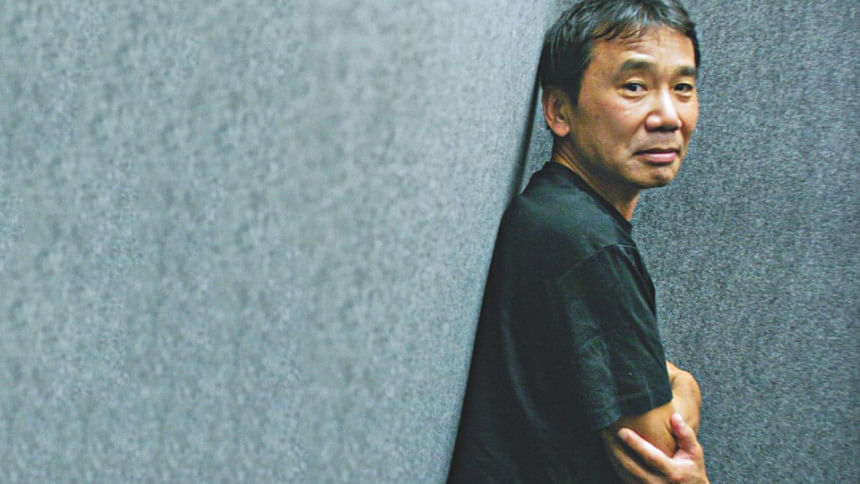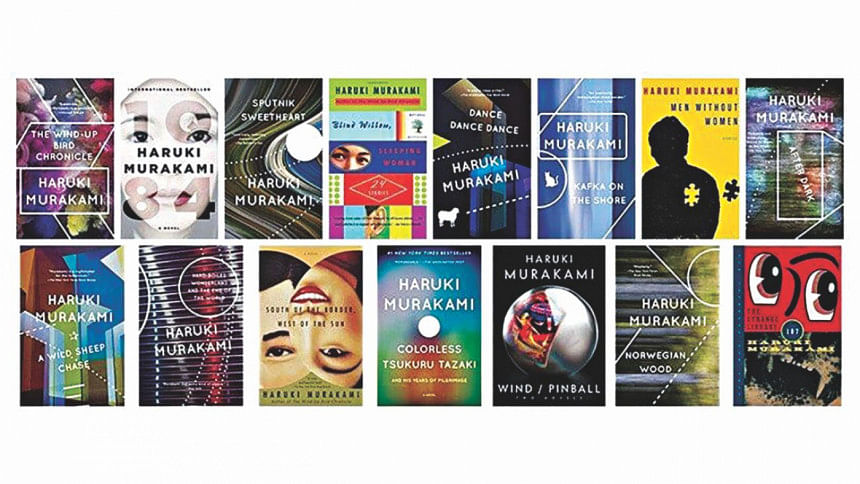No Murakami left behind

In the world of fiction, one name you are bound to have come across is Haruki Murakami. With his recent surge in popularity, you can now find an assortment of Murakamis in any old bookshop. That is why now is the best time to get stuck into his works.
Note that when I speak of "getting stuck into his works", I don't just mean picking out any random book and reading. Even though most of his works are not connected, it is more rewarding than you'd think to experience them one after the other. Of course, one point to be noted is that Murakami novels are quite detail-oriented.
By that I don't mean that it consists of page after page of descriptions like in The Lord of The Rings. It does, however, feature long sequences where the plot progresses quite slowly. During those periods it starts to feel like there is an overabundance of details which lead nowhere. Personally I enjoy the skill with which he maintains the steady pace in those sections, because it sets up the plot to progress very quickly near the climax. However, others often dislike him for the same reason. This is why you should first check out one novel to see if it scratches your itch.
If your itch has been sufficiently scratched, then you're in luck. Murakami is one of those authors whose works are different. Wildly so. In one book, you might follow the adventures of a teenager who ran away from home and an old disabled man who talks to cats. In another you might go on an adventure to rescue your shadow and stop the world from ending. You could even choose to find the world's most unique pinball machine.

Hidden in this wonderfully diverse landscape, however, are little morsels of details which you start to notice as you continue to read his books. These strands of details join together to form connections you never would have imagined, and you'll feel proud for having discovered them.
One which reveals itself slowly is that the world is skewed. Not too much. Just enough for you to notice something is amiss, but not enough to realise what. This feeling intensifies as you progress through an individual book as well as his catalogue. Slowly but surely, the worlds built by Murakami reveal that they are unlike our worlds. They might have wormholes to other dimensions, cows which want pliers and people who wear only pink.
In addition, many of the characters feel like they've jumped pages between novels. One of the main characters of Norwegian Wood, Naoko, has a personality and a disposition that is often reflected by many other female characters. Most notable is the implication that she, or at least one part of her, is stuck in an alternate world. Similarly, other female characters such as Miu from Sputnik Sweetheart or Miss Saeki from Kafka on the Shore echo this sentiment of not being entirely present in this world. Once you realise the links it's almost like seeing an old friend after many years, on a street in a country they shouldn't be in. But they are, and you're all the more glad for it.
Finally, the most common element is how all the towns and cities sound when described by Murakami's skillful voice. Whichever the place, Murakami paints it as a place that is bleak but sprawling with activities and interesting characters. The landscapes are beautiful but intimidating, which soon grows into a sense of familiarity. At the end of the day, it's almost like the narrow side streets of Japan are ones you'd spent your whole life growing up in.
In short, Murakami's skill with words makes his writing very unique. When reading his novels you'll have much more to enjoy than just the plots, or the writings. The best parts of his writings are the connections that sneak up on you. To get a better idea of what I blabbered on and on about, do yourself a favour and get started on this journey. It's one you won't regret.
With a heart of ash and a PC of potato, Wasique Hasan could use some help. Send help: facebook.com/hasique.wasan

 For all latest news, follow The Daily Star's Google News channel.
For all latest news, follow The Daily Star's Google News channel. 



Comments